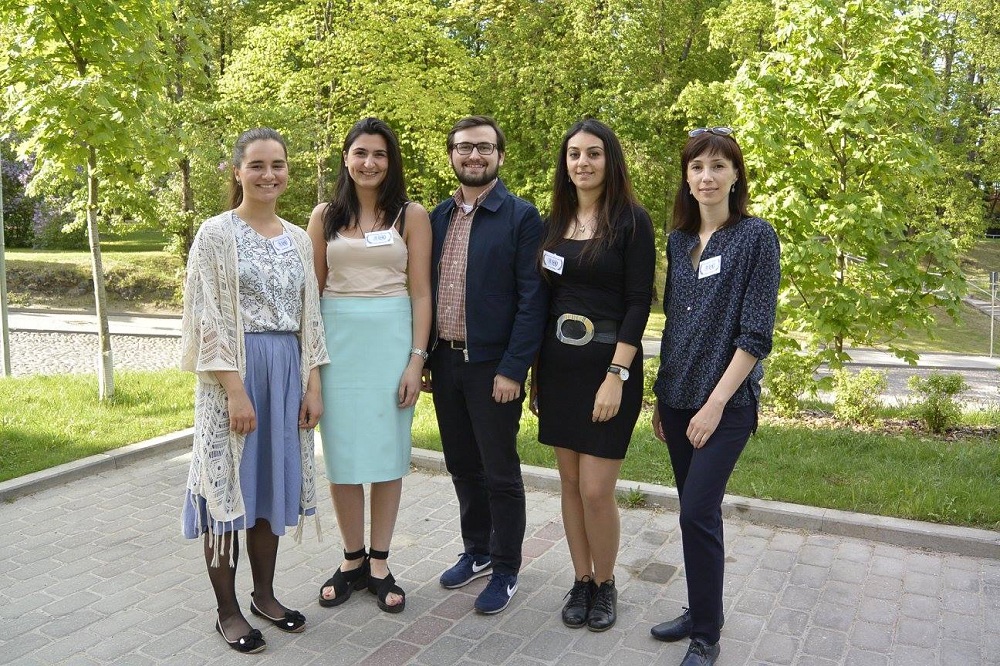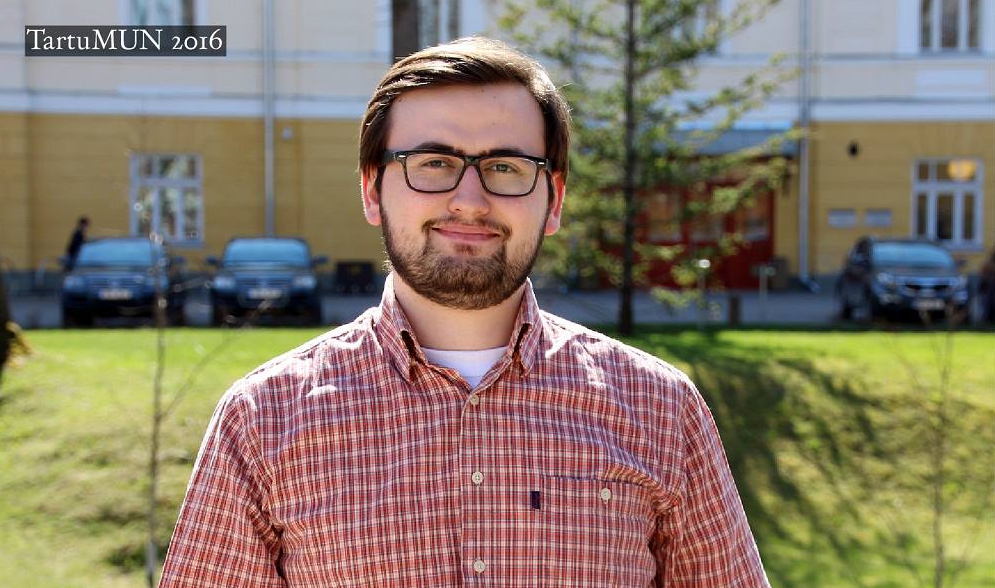
Giorgi Davidovi from Georgia shares his experience about studying at the University of Tartu in the Master program of Democracy and Governance.
First off, tell us where you are from and what did you do before coming to Estonia?
I come from Georgia’s one of the multi-ethnic regions and the sense of belonging to my community pretty much determined what I was doing in Georgia during the last couple of years. Before coming to Estonia, I obtained a BA degree of social sciences in international relations. My previous BA studies allowed me to apply the knowledge in real life, outside the classroom. Since 2012, I have been engaged in civil society activism in my capacity as the program development officer at the Helsinki Citizens Assembly-Georgian National Committee. At this time, I was working in the fields of youth empowerment in multicultural communities and reconciliation building in divided societies. Subsequently, becoming a member of EaP Civil Society Platform and running “the Program of Civil Society Development through HEI“ pushed me to look at my grassroots activism from a different perspective. It is worth noting that I still maintain the tight ties that I have developed during these years with various communities in Georgia. Despite being distanced from my society, I still feel as part of it and actively try to contribute to overcoming the political and social obstacles that we still face in Georgia.
Why did you choose to study Democracy and Governance (D&G) in Tartu?
There are several reasons that motivated me to apply to the program. One of the main reasons behind my choice was the high academic performance of Johan Skytte Institute of Political Studies. After spending more than a year at the University of Tartu, I came to realize that being part of this institute helps me to combine theoretical knowledge and applied skills. This aspect was decisive for my decision and it still remains valid.
Frankly speaking, I was more curious about the program itself and I found it very interesting and challenging to integrate two emerging fields of political sciences, providing intellectual tools to analyze democracy and governance in the multidisciplinary perspective. Due to my previous experiences and interests, I was eager to examine the key challenges of the practice, concepts and mode of governance in a broader sense. Therefore, the D&G program turned out to be exactly what I was looking for my graduate studies.
Describe your studies for us a bit: how and what have you learned from D&G courses?
Our study program is very interactive and, compared to the Georgian system of education, it was a very different approach for me, which I found quite useful. The supervisors are always serving as facilitators at the seminars and trying to spark the discussion among the students that helps me to gain a deeper understanding of issues we are studying here. Almost all courses at the D&G program are taught in a comparative political perspective and this is one of the main things I have learned – comparing the political processes, democratic institutions and modes of governance in different cases to each other, and explaining things outside the box. Up until now, we have covered core courses about the electoral participation and political behavior, social and political changes, comparative ethnopolitics, political theory and practice.
The most important part of the program for me was public governance module that gave me the possibility to advance my knowledge in the governance field. This module later served as the ground for my MA thesis proposal, where I explore the formation of policy networks in the perspective of systems of meanings, cognitive beliefs, and policy-related symbols. The reason behind of selecting my research topic is that we often fail to explain emotional biases to collaboration and sometimes we create institutional arrangements without meanings, which make them fragile.
What is different or difficult for you about studying in an international environment?
My fellow students come from all over the world and living in this cultural environment is the added value of studying in Tartu. Everyday life might have some challenges when Tartu’s tiny space accommodates such diversity, but it disappears as soon as you are getting together around the table and start exploring the real stories of people from all over the world. This environment is especially interesting for the future political scientists. You can have an hour chat with your friend from Turkey and hear more than the media will tell you, ask your American friend what her folks think about the elections. One might say these are the small things, but I can’t imagine being happy in Tartu without having this.
In the framework of your D&G years, you have also done an internship. How has this complemented your studies
I had the honor to serve at the Norwegian Institute of International Affairs (NUPI) as a Visiting Research Fellow. My traineeship was part of the bilateral cooperation action between NUPI and the University of Tartu. Up until now, the traineeship is one of the highlights of my graduate time which definitely complemented my studies in many regards. Firstly, I had a chance to work in an international environment and to have an insight into how a think-tank type of organization functions, how the tasks are divided and how things I am learning at class are transformed into real actions on a global level. During my stay at NUPI, I had the chance to discuss my MA research project with professionals. In overall, the traineeship was simply inspirational and encouraging.

Master students initiated the Tartu Model UN simulation photo: TartuMUN
Would you say that studying and living in Tartu has changed you?
Put it simply, coming to Tartu was a milestone in my life. Definitely it changed me a lot. Firstly, it is about the intellectual growth and then about the personal or professional network. The funny thing is that, taking into account the Estonian weather, I start to appreciate every single minute of sunshine we get here in Tartu.
Do you already have an idea what you would like to do after you graduate next spring? Where would you like to contribute?
After graduation I consider myself to be interested in studies at the Ph.D. level, where I will be exploring the on governance field again but this time in terms of peacebuilding perspective.
My previous educational and working experience gives me a basis to set more long-term objectives including the establishment of Tbilisi Institute for Global Civil Society Studies as an institutional instrument to develop global civil society studies, contributing the establishment of impact-based civil society institutions in my country.
Some might say there are quite a lot of worrying political trends in 2016 – the rise of populists and the success of far-right movements, erosion of democracy, Brexit, US election concerns, etc. Would you say that studying D&G is helping you to understand or explain the world today?
It takes two years to discuss these questions at our program! The main point is that D&G program provided tools and guiding principles that I should be considering while analyzing and understanding the things. At the end of the day, we as future scholars are responsible on how we interpret the recent developments. Having this freedom is crucial, especially when it comes to the obstacles that we have in almost every single part of the world. Definitely, the obstacles have a painful negative outcome.
My concern is not the painful outcome in the first place, but the trajectory of thinking that we still tend to follow. Unfortunately, I have more follow-up questions to this question than answers: Do we realize, what is the reason behind the rise of populism and the increase of authoritarianism, persisting structural economic inequalities, the erosion of liberal democracy? Do we think how we could change things? Maybe these are the questions that we should be spending a bit more time on, going back to the drawing board more often than we do now, to make upcoming challenges smoother.
University of Tartu in the Master program of Democracy and Governance


Could you write about Phsiycs so I can pass Science class?